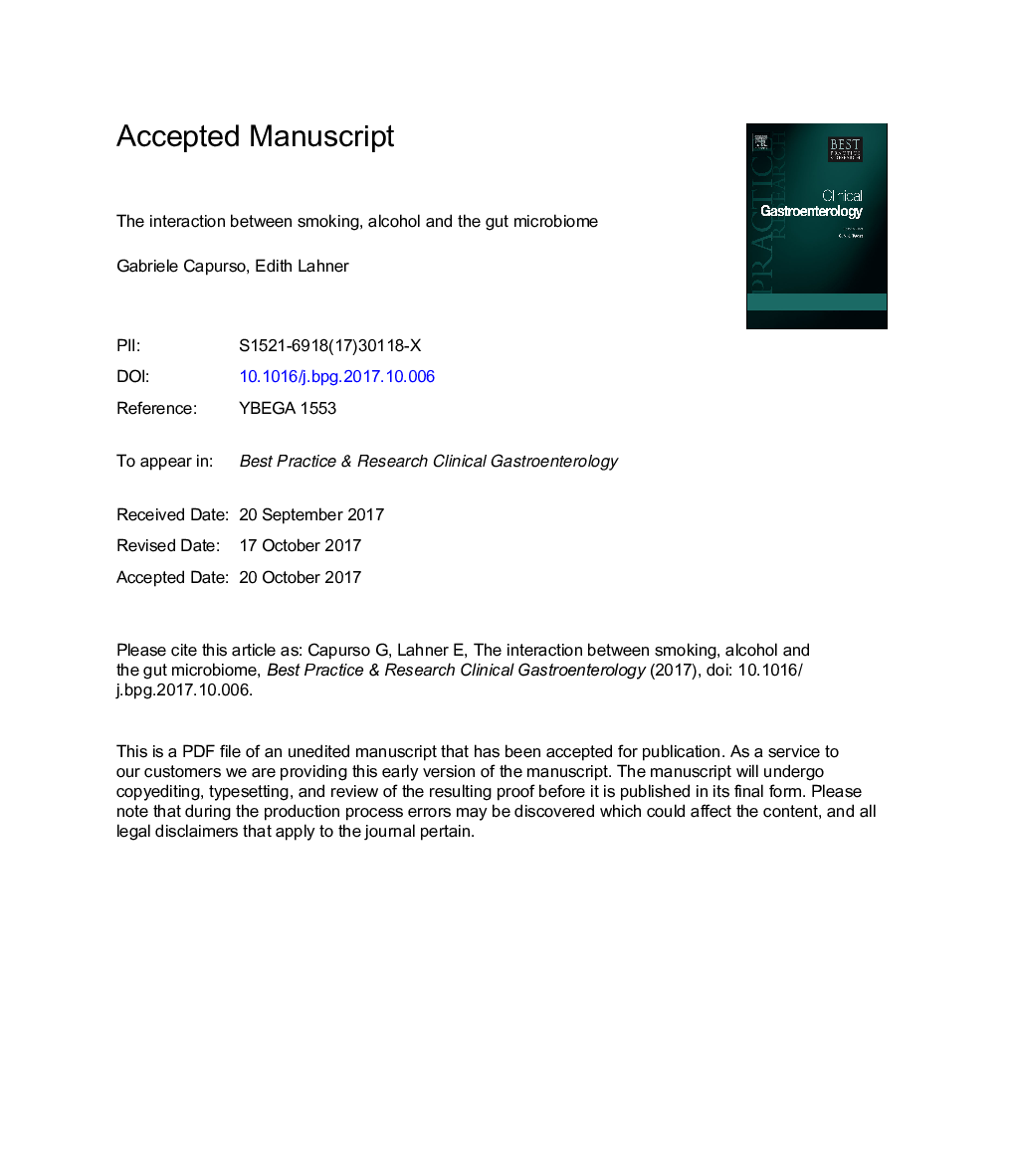| Article ID | Journal | Published Year | Pages | File Type |
|---|---|---|---|---|
| 8720666 | Best Practice & Research Clinical Gastroenterology | 2017 | 36 Pages |
Abstract
The gastrointestinal microbiome is a complex echosystem that establishes a symbiotic, mutually beneficial relation with the host, being rather stable in health, but affected by age, drugs, diet, alcohol, and smoking. Alcohol and smoking contribute to changes in the stomach and affect H pylori-related disorders including the risk of gastric cancer. In the small intestine and in the colon alcohol causes depletion of bacteria with anti-inflammatory activity, eventually resulting in intestinal damage with “leaky gut”. These changes contribute to hepatic damage in both alcoholic and non-alcoholic liver disease and have been associated with other disorders. Lactobacillus GG and A. muciniphila exert a protective effect in this setting. Smoking leads to modifications of the gut microbiome linked with a protective effect toward ulcerative colitis and deleterious for Crohn's disease. The exact cause-effect relation between alcohol and smoking and changes of the gastrointestinal microbiome needs further exploration with high throughput methodologies, and controlled studies are necessary to define the role of microbiome modulation on the immune response and systemic activation of pro-inflammatory pathways.
Keywords
Related Topics
Health Sciences
Medicine and Dentistry
Endocrinology, Diabetes and Metabolism
Authors
Gabriele Capurso, Edith Lahner,
